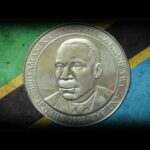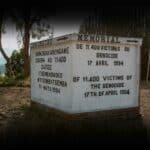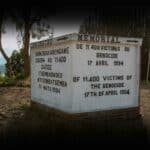International Day of Reflection on the Genocide in Rwanda is observed annually on April 7 to remember the victims of the 1994 Rwandan genocide. Did you know that between 500,000 to 800,000 Tutsi were killed during the Rwandan genocide in 1994? International Day of Reflection on the Genocide in Rwanda is an international remembrance day marked by the United Nations and all its member states. To mark the occasion, commemorative events are held in cities around the world, including Kigali (Rwanda), Dar-es-Salaam (Tanzania), Geneva (Switzerland), and New York City (United States). Typically, all U.N. member states are invited to observe one minute of silence in memory of the victims.
History of International Day of Reflection on the Genocide in Rwanda
While the Rwandan genocide can be traced back to the 1800s, the massacre took place between April 7 and July 15, 1994. The Rwandan revolution deposed the Tutsi monarchy in 1959. As a result, thousands of Tutsis fled to neighboring countries, including Tanzania and Uganda. A faction of the exiled Tutsi later formed the Rwandan Patriotic Front (R.P.F.), which was led by Fred Rwigyema and Paul Kagame, Rwanda’s current president. This rebel group invaded Rwanda in October 1990, but the Rwandan army repelled them with the help of France and Zaire. In January 1991, the R.P.F., now led by Kagame, began a hit-and-run guerrilla war with the Rwandan army. In August 1993, Rwandan President Juvénal Habyarimana agreed to a peace deal (known as the Arusha Accords) with the R.P.F.On 6 April 1994, the plane carrying Habyarimana and Burundian President Cyprien Ntaryamira was shot down, killing everyone on board. This triggered the 100-day genocide. Hutu extremists and the R.P.F. both blamed each other for the assassination, with the R.P.F. claiming it was done to justify the genocide. Following the assassination, the country was taken over by a crisis committee led by Colonel Theoneste Bagosora, who coordinated the genocide. Militias were given lists of Tutsi and moderate Hutu military and political leaders, and they executed them and their families. That included Prime Minister Agathe Uwilingiyimana and her husband, President of the Constitutional Court Joseph Kavaruganda, Minister of Agriculture Frederic Nzamurambaho, Parti Liberal leader Landwald Ndasingwa and his Canadian wife, and chief Arusha negotiator Boniface Ngulinzira.Using Rwandan’s national I.D. card, government forces could identify and kill ethnic Tutsis. Hutu ethnic members were also encouraged to rape, maim, and kill their Tutsi neighbors, as well as to destroy or steal their property. Following the death of Juvénal Habyarimana, the RPF resumed their offensive against Rwanda, and by mid-July, they had gained control of northern Rwanda and captured Kigali. This effectively ended the genocide and forced nearly two million Hutus to flee to Zaire, Tanzania, and Burundi. On April 7, 2004, the United Nations declared the International Day of Reflection on the Genocide in Rwanda.
International Day of Reflection on the Genocide in Rwanda timeline
Unknown gunmen assassinate Rwandan President Juvénal Habyarimana and his Burundi counterpart aboard a plane.
Colonel Theoneste Bagosora leads the crisis committee, which orders government forces and Hutu ethnic members to kill Tutsi.
The R.P.F. captures Kigali, bringing an end to the 100-day genocidal attacks.
The United Nations declares April 7 as the International Day of Reflection on the Genocide in Rwanda.
International Day of Reflection on the Genocide in Rwanda FAQs
How did the Rwandan genocide stop?
The Rwandan genocide ended when the R.P.F. captured Kigali, deposed the Hutu-led government, and assumed power.
How did the Rwandan genocide begin?
It began with the assassination of Rwandan President Juvénal Habyarimana. Hutu extremists then used the event as justification to launch a large-scale genocide against the Tutsi people.
How long did the Rwandan genocide last?
The 1994 Rwandan genocide lasted for 100 days. It began on April 7 and ended on July 15.
How to Observe International Day of Reflection on the Genocide in Rwanda
-
Attend a commemorative event
On International Day of Reflection on the Genocide in Rwanda, commemorative events are held in major cities across the world in memory of the genocide victims. If you are in Kigali, New York City, Dar-es-Salaam, or Geneva, you can inquire about the event’s details with the U.N. or the Rwandan Embassy or government.
-
Watch a film or documentary on the genocide
Several stories about the genocide have been told in films and documentaries. One of the most well-known films is “Hotel Rwanda,” depicting the bravery of Paul Rusesabagina, a Rwandan hotel manager during the crisis. Other films include “Sometimes in April,” “Rwanda: The Untold Story,” “My Neighbor, My Killer,” and “Beyond Right and Wrong.”
-
Learn more about the Rwandan Civil War
You still need to understand the full scope of the genocidal attack, its motivations, and the consequences for the Rwandan people and society. Although this article touches on a brief history of the genocide, look up the internet for detailed facts.
5 Facts About The Rwandan Genocide
-
The genocide was between two ethnic groups
The majority Hutu ethnic group perpetrated the genocide against the minority Tutsi ethnic group.
-
Triggered by the death of a president
The genocidal killings began with the assassination of Rwandan President Juvénal Habyarimana.
-
The genocide lasted for 100 days
The genocide occurred between April 7 and July 15, 1994.
-
It led to the First Congo War
After forcing the genocidaires into D.R.C., the Rwandan government, led by the R.P.F., launched an offensive against the ousted government and Hutu refugees, starting the First Congo War.
-
Rape was rife during the genocide
During the genocide, between 250,000 and 500,000 women were raped.
Why International Day of Reflection on the Genocide in Rwanda is Important
-
It commemorates the victims of the genocide
The International Day of Reflection on the Genocide in Rwanda is a special day to remember the hundreds of thousands of lives lost or negatively affected during the 1994 Rwandan Genocide. It remembers the victims and the pains they have endured, and it calls for collective efforts to improve the lives of the survivors.
-
It promotes actions against future genocides
Aside from commemorating the victims, International Day of Reflection on the Genocide in Rwanda provides an opportunity for governments and relevant organizations, such as the U.N., to rally support to prevent future genocides. These could include stronger international laws against genocides and increased access to humanitarian aid access for people living in war and conflict zones.
-
It calls for justice
The International Day of Reflection on the Genocide in Rwanda creates a platform for the Rwandan government and relevant organizations to advocate for justice for genocide victims and reparations from complicit countries.
International Day of Reflection on the Genocide in Rwanda dates
| Year | Date | Day |
|---|---|---|
| 2023 | April 7 | Friday |
| 2024 | April 7 | Sunday |
| 2025 | April 7 | Monday |
| 2026 | April 7 | Tuesday |
| 2027 | April 7 | Wednesday |



























